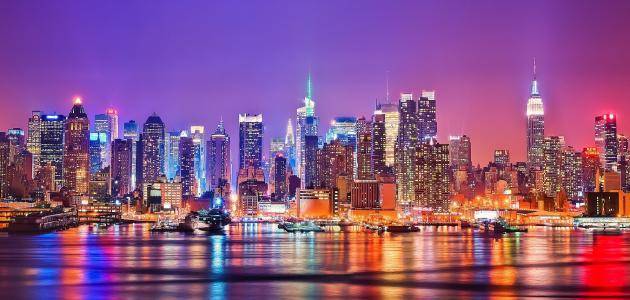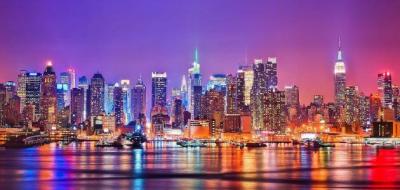Residents of New York are once again facing a familiar problem: the loud sounds of helicopters, which had ceased operations during the COVID-19 pandemic, according to a report by the Agence France-Presse from New York.
Melissa Elstein, who leads a campaign to ban unnecessary helicopter trips, states, "My apartment shakes from the flyovers of helicopters larger than those before."
The 56-year-old woman tells Agence France-Presse, "Helicopters cause air pollution and create noise pollution that harms residents' health."
New York continuously witnesses flights of helicopters used by tourists for short and costly aerial tours of the city's landmarks.
These helicopters also transport wealthy residents wanting to avoid traffic jams on their way to their summer homes along the beach in the upscale Hamptons area.
Elstein is not the only New Yorker unhappy with the nearly constant noise generated by the tens of thousands of organized flights each year.
Last year, the city received 25,821 calls to its hotline from people complaining about helicopter noise, while similar calls numbered 10,359 in 2020. The vast majority of complaints (21,620) came from Manhattan residents.
Residents may experience quiet periods soon, as the New York State legislature approved a bill this month imposing fines of up to $10,000 daily on companies that generate "excessive" noise.
If Governor Kathy Hochul signs the bill into law, it will represent the state's first legislation addressing noise pollution caused by helicopters.
Senator Brad Hoylman, the bill's sponsor, stated that "a large number of New Yorkers are unable to work comfortably from their homes or enjoy a walk along the waterfront, and children's sleep has been disrupted due to the continuous noise and vibrations from unnecessary helicopter use."
He noted that one helicopter can emit carbon dioxide amounts 43 times greater than those emitted by a car traveling for an hour.
Hoylman confirmed in a statement that "helicopter noise causes not only annoyance but also harms our health and environment."
Andy Rosenthal, the head of "Stop the Chop," an organization of volunteers aiming to ban unnecessary helicopter flights, believes the bill does not provide a radical solution.
He says the bill "represents a good first step. (However) it lacks the measures we hoped for. Helicopter flights continue."
New York City has three active helicopter pads, two of which are in Midtown along the Hudson and East rivers for corporate and charter flights, and a third near Wall Street in Lower Manhattan used for sightseeing trips.
The cost of a sightseeing flight over New York lasting 15 to 20 minutes is at least $200 per tourist.
Amid complaints about helicopter noise, former Mayor Bill de Blasio's administration agreed with industry stakeholders to reduce the number of tourist flights annually from 60,000 to 30,000 starting in 2017.
De Blasio's administration also banned tourist flights leaving New York City intended to fly over the rivers surrounding Manhattan, prohibiting them from flying over land.
Tourist helicopters departing from New Jersey are allowed to fly over Manhattan, including Central Park. Passenger flights leaving New York City are also permitted to fly directly over buildings.
Elstein stated, "This sector should not exist and is not needed; it serves the interest of a small percentage of people."
Despite all this, some New Yorkers have grown accustomed to the sounds of helicopters and have come to accept them as a reality in the noisy financial, cultural, and tourist capital of the United States.
Marc Rouberg, who lives near a helicopter pad at the southern tip of Manhattan, said the sounds of helicopters have become "background noise," adding, "It seems part of the experience" of living in the city.




